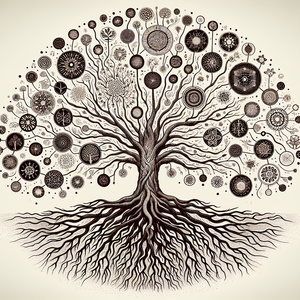Beyond the Scrubs: The Emotional Resilience of Cardiac Cath Lab Nurses

Cardiac cath lab nurses confront a unique array of challenges on a daily basis. Their work environment is fast-paced and often unpredictable, characterized by the urgency of procedures like angioplasties and stent placements. In these high-pressure situations, the stakes are incredibly high; nurses must be prepared to act quickly and effectively as patients’ lives hang in the balance. The emotional toll of witnessing patients in critical conditions can be overwhelming.
Coping Strategies and Support Systems
To effectively navigate the emotional rollercoaster of their demanding roles, cardiac cath lab nurses develop and employ various coping strategies. A common thread among these professionals is the critical importance of teamwork and communication. James, another cath lab nurse, emphasizes, “Having a supportive team makes all the difference. We debrief after tough cases, share how we felt, and support each other. It helps tremendously.” This camaraderie not only fosters a sense of belonging but also provides a crucial outlet for emotional expression.
The Importance of Mental Health Awareness
The emotional toll on healthcare workers, particularly in the wake of the COVID-19 pandemic, has garnered significant attention. Compassion fatigue—a state of emotional exhaustion and reduced empathy affecting those in caregiving roles—has become a pressing concern. Cardiac cath lab nurses are not immune to this phenomenon, and it highlights the necessity for institutions to prioritize mental health resources.
Conclusion: Celebrating Emotional Resilience
The emotional resilience displayed by cardiac cath lab nurses is nothing short of remarkable. They not only deliver critical care but also embody the compassion and empathy that are foundational to nursing. By sharing their experiences and coping strategies, these nurses illuminate the often-overlooked psychological aspects of their profession.
In conclusion, the role of cardiac cath lab nurses extends far beyond technical expertise; it encompasses emotional resilience that is vital for patient care. By understanding their challenges and supporting their mental health, we can help ensure that these dedicated professionals remain strong advocates for their patients, providing care that is not only effective but also compassionate.
Cardiac Cath Lab Technologist
hospitals, cardiac care centers, and specialty clinics
Job Responsibilities
Operate and maintain cardiac catheterization equipment, ensuring proper functionality during procedures.
Assist physicians in performing diagnostic and interventional procedures, such as angiograms and stent placements.
Maintain patient records and ensure compliance with safety protocols and regulatory standards.
Skills Required
Proficiency in imaging technology
Knowledge of cardiovascular anatomy
Clinical Nurse Specialist (CNS) in Cardiology
academic medical centers and specialized cardiac care facilities
Job Responsibilities
Provide expert consultation on complex cardiac cases, collaborating with healthcare teams to formulate treatment plans.
Educate patients and families about cardiac conditions, treatment options, and lifestyle modifications to improve heart health.
Conduct research and implement evidence-based practices to enhance patient outcomes in cardiac care.
Qualifications Required
Advanced clinical training
Certification as a CNS
Heart Failure Nurse Navigator
hospitals and outpatient cardiac clinics
Job Responsibilities
Coordinate care for heart failure patients by developing individualized treatment plans and monitoring progress throughout their care journey.
Educate patients on managing heart failure symptoms and adhering to medication regimens to prevent hospital readmissions.
Collaborate with multidisciplinary teams to address the psychological and physical needs of patients, ensuring comprehensive support.
Skills Required
Strong communication abilities
Background in heart failure management
Interventional Cardiologist
hospitals and specialized cardiovascular practices
Job Responsibilities
Perform catheter-based procedures, such as angioplasties and stent insertions, to treat coronary artery disease.
Conduct diagnostic tests, interpret imaging results, and provide treatment recommendations based on patient assessments.
Stay updated on the latest advancements in cardiovascular technologies and techniques to enhance patient care.
Qualifications Required
Medical degree
Cardiology fellowship
Board certification in interventional cardiology
Cardiac Rehabilitation Specialist
hospitals and outpatient rehabilitation centers
Job Responsibilities
Design and implement cardiac rehabilitation programs tailored to individual patient needs following cardiovascular events.
Monitor patients’ progress, provide education on heart-healthy lifestyles, and encourage adherence to rehabilitation protocols.
Collaborate with healthcare providers to adjust rehabilitation plans based on patient feedback and recovery goals.
Skills Required
Certification in cardiac rehabilitation
Experience in exercise physiology


